Mastering On-Page SEO: How to Optimise Your Website for Success
August 23, 2023

In the ever-evolving digital world, having a strong online presence is a crucial aspect of success for small businesses. One key factor that determines your website’s ability to attract organic traffic and rank higher on search engine results pages (SERPs) is on-page SEO (Search Engine Optimisation). By mastering the art of on-page SEO, you can significantly enhance your online visibility, drive targeted traffic to your website, and ultimately increase conversions.
In this informative blog article, we will detail the vital components of effective on-page SEO, including keyword research, meta tags, content optimisation, and internal linking strategies. Our goal is to equip you with the knowledge and techniques required to transform your website into a search engine magnet, driving more organic traffic and generating greater ROI for your marketing efforts.
1. Conducting In-Depth Keyword Research
Keyword research is the foundation of effective on-page SEO and involves identifying the search terms and phrases your target audience is using. This information is crucial in guiding your content creation and optimisation efforts. To conduct thorough keyword research, follow these steps:
- Define Your Goals: Establish the objectives of your website, taking into account your target audience, products, or services. This information will help you select the most relevant keywords for your business.
- Brainstorm: Create a list of possible keywords that reflect your business niche and align with your goals. Consider the search terms your customers might use when searching for information, products or services related to your offering.
- Use Keyword Research Tools: Utilise keyword research tools, such as Google Keyword Planner, Moz’s Keyword Explorer or SEMrush, to find additional keywords and evaluate their search volume, competition, and relevance to your business.
- Analyse Competitors: Investigate the keywords your competitors are targeting to identify potential opportunities or areas for improvement.
- Create a Keyword Map: Assign your chosen keywords to specific pages on your website, ensuring each page is optimised for a unique target keyword.
2. Crafting Effective Meta Tags
Meta tags are essential elements of on-page SEO, providing search engines with information about your webpages and influencing click-through rates (CTRs) from SERPs. To optimise your meta tags, focus on the following aspects:
- Title Tag: The title tag is a major ranking factor and should include your target keyword in a user-friendly, enticing format. Ideally, keep your title tag under 60 characters to avoid truncation in search results.
- Meta Description: The meta description offers a brief summary of your webpage’s content and serves as an opportunity to entice users to click. Include your target keyword and a clear call-to-action, and aim for a length of around 150-160 characters.
- Header Tags (H1-H6): Use header tags to structure your content and highlight the main topics covered. This helps both search engines and users understand your content more effectively. Include your target keyword in the H1 tag and use related keywords or phrases in your H2-H6 tags.
3. Optimising Content for SEO
Creating high-quality, relevant content is vital for on-page SEO success. Search engines prioritise user experience and reward websites that deliver informative and engaging material. Consider these tips for optimising your content:
- Unique and Valuable Content: Craft content that provides value to your audience and sets you apart from competitors. Aim to offer fresh perspectives, in-depth information, or innovative solutions.
- Keyword Placement: Incorporate your target keyword and related phrases naturally within your content. Avoid over-optimising and ensure the content remains readable and engaging.
- Readability: Structure your content with short paragraphs, bullet points, and clear subheadings to enhance readability and retain your audience’s attention.
- Visual Elements: Heighten user experience through the use of relevant and appealing images, videos, or graphics. Remember to optimise these elements by including descriptive alt-text and reducing file size to improve page loading speed.
4. Implementing Internal Linking Strategies
Internal linking refers to the process of connecting related pages within your website, helping search engines and users to navigate easily. An effective internal linking strategy can improve your overall on-page SEO performance. Here are some best practices to follow:
- Logical Connections: Establish links between relevant pages that provide complementary or supplementary information. This encourages users to further explore your website and search engines to index more pages.
- Anchor Text Optimisation: Use relevant anchor text that accurately reflects the linked content, avoiding generic phrases such as “click here” or “learn more.” This helps users and search engines understand the context of the link.
- Prioritise Important Pages: Identify your website’s most valuable pages and incorporate more internal links pointing to these pages to increase their authority and visibility in search results.
- Spread Link Equity: Distribute links evenly across your website to ensure that every page has at least a few internal links pointing to it. This helps to spread “link equity” and maintain a well-structured website.
Conclusion:
On-page SEO is the cornerstone of any successful website, ensuring that your content is found, understood, and appreciated by both search engines and users alike. By implementing effective keyword research, optimising meta tags and content, and adopting strategic internal linking practices, you can significantly improve your website’s search engine rankings and increase organic traffic.
At QB & Co Consulting, we are dedicated to assisting small businesses in Brisbane with tailored marketing strategies and simple automation solutions. Let our expert team guide you in the realm of on-page SEO content marketing strategy, equipping you with the techniques and knowledge required to excel in today’s competitive digital landscape. Book a FREE 30-minute call with us us today and discover how our personalised services can transform your website’s performance and help secure your business’s success!
